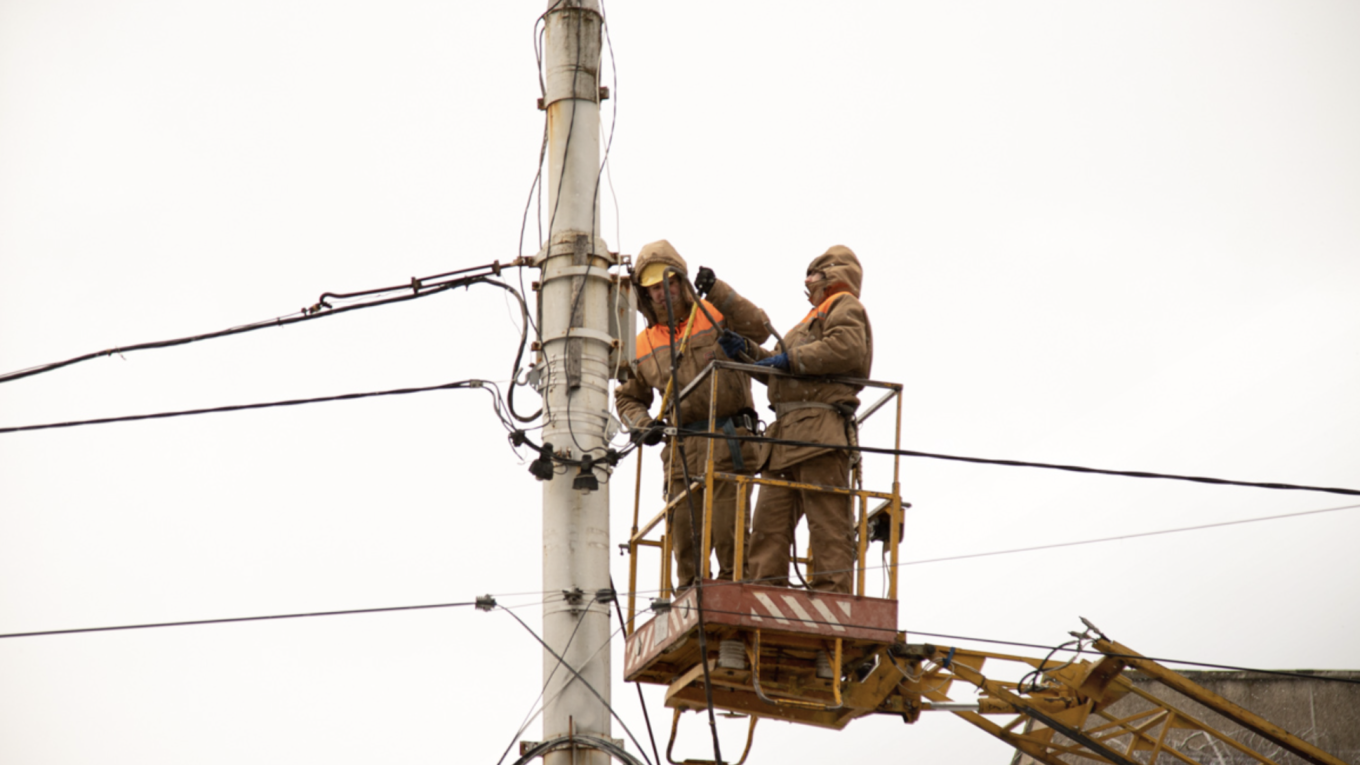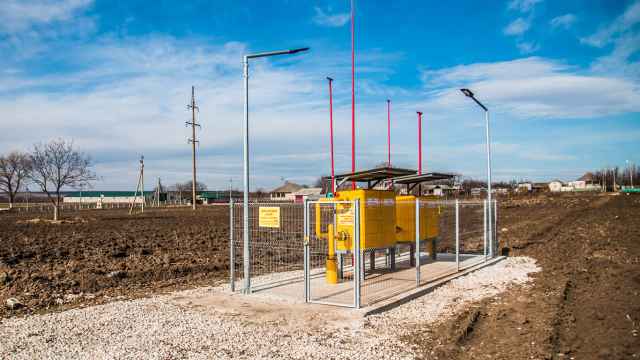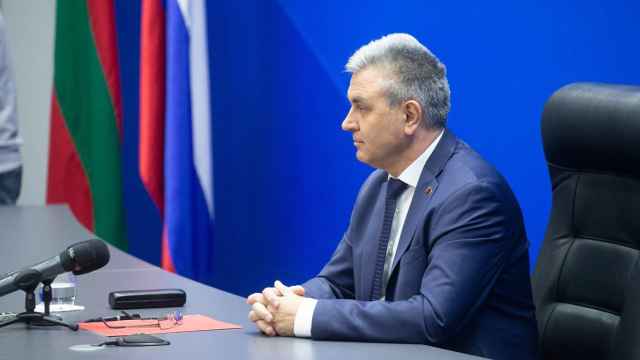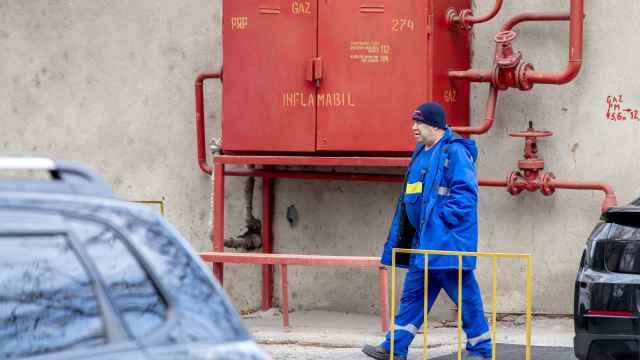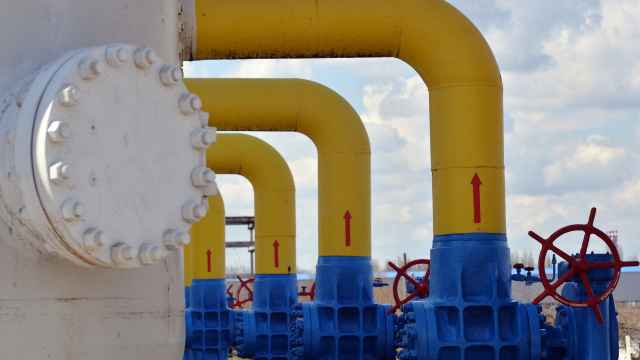Moldovan authorities on Monday announced the summoning of a Russian diplomat following accusations over the worsening situation in its breakaway Transnistria region, which fears a complete electricity blackout after Russia cut gas supplies.
The tiny separatist republic bordering Ukraine has been unable to provide heating and hot water to residents since Jan. 1, when Moscow cut off gas supplies to Moldova over a financial dispute.
With temperatures hitting freezing, people have been forced to burn wood or rely on plug-in electric heaters.
The resulting surge in electricity demand has heaped pressure onto the Soviet-era grid, which could soon buckle, the region's leader Vadim Krasnoselsky said in a video address on Monday.
He said the region was using a third more power than it normally produces and warned of a "technological malfunction" or "fire" at the region's main power station.
"Then we will be left without any electricity at all, then a very bad scenario will arrive," Krasnoselsky said in remarks published on Telegram.
In late December, Russia's Gazprom announced that it would cut gas supplies to Moldova amid a debt dispute, even before Kyiv officially terminated a transit contract.
Until now, local energy group Tiraspoltransgaz had supplied the Transnistria region, but without paying for the deliveries.
By sending the payment requests to Chisinau, the breakaway region gradually increased Moldova's debt owed to Gazprom.
Moscow said the debt owed amounts to more than $700 million, while Chisinau said it was just $9 million.
'Creating instability'
On Monday, both sides traded blame over the situation in Transnistria.
Russia's Embassy in Moldova denied accusations Moscow had "abandoned" the breakaway region and accused Moldova and Ukraine of trying to "undermine the trust of Transnistrians in Moscow."
It said that the financial dispute with Moldova was the main cause of the crisis, but that Ukraine had exacerbated the situation by ending a gas transit deal on Jan. 1.
Krasnoselsky, backed by Moscow, has also blamed the Moldovan government.
Following the accusations, the Moldovan foreign ministry announced the summoning of Moscow's representative.
"The meaning of all of this is for Russia to create instability in the region but also, very importantly, to influence the results of the parliamentary elections" due to take place next autumn, Moldovan Prime Minister Dorin Recean told a foreign press briefing.
Moscow could "deliver gas through the TurkStream pipeline, but it deliberately doesn't do that," he said, adding that Transnistria was now also suffering water supply disruptions.
The rest of Moldova has been less affected by the supply cuts, as it has been importing electricity from Romania and had already stopped using Russian gas.
But prices are expected to almost double, and the Moldovan government is hoping for EU aid to help households cope with the price hikes.
Transnistria's major power plant has switched to using coal, supplies of which are expected to last until the end of January, according to the Moldovan government.
The station used to supply the rest of Moldova, but cut transmissions at the start of the year.
Rolling blackouts have been introduced across Transnistria and factories and schools have been shuttered.
Free firewood has been made available, while residents are being encouraged to dress warmly, gather family members into a single room and seal doors and windows with curtains and blankets.
Internationally recognized as part of Moldova, Transnistria declared independence at the end of the Soviet Union and has been reliant on Moscow's financial support ever since. Russia has around 1,500 troops stationed there.
A Message from The Moscow Times:
Dear readers,
We are facing unprecedented challenges. Russia's Prosecutor General's Office has designated The Moscow Times as an "undesirable" organization, criminalizing our work and putting our staff at risk of prosecution. This follows our earlier unjust labeling as a "foreign agent."
These actions are direct attempts to silence independent journalism in Russia. The authorities claim our work "discredits the decisions of the Russian leadership." We see things differently: we strive to provide accurate, unbiased reporting on Russia.
We, the journalists of The Moscow Times, refuse to be silenced. But to continue our work, we need your help.
Your support, no matter how small, makes a world of difference. If you can, please support us monthly starting from just $2. It's quick to set up, and every contribution makes a significant impact.
By supporting The Moscow Times, you're defending open, independent journalism in the face of repression. Thank you for standing with us.
Remind me later.


